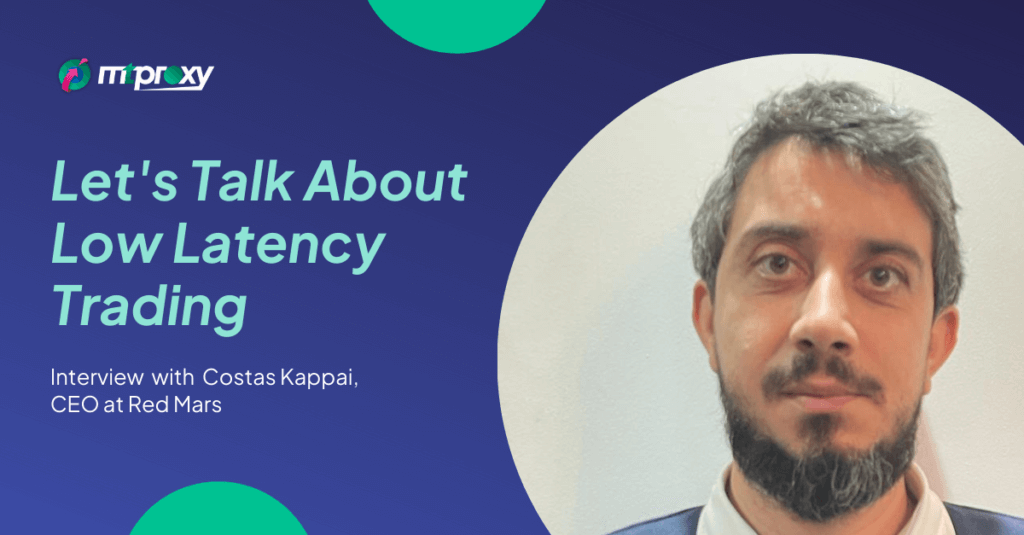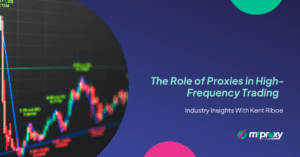For our latest industry interview, we spoke with Costas Kappa, at RedMars. He shared his thoughts on the challenges brokers face when trying to reduce latency, and what they can do to ensure fast trade execution for all its clients. Here is the interview.
Low Latency Trading With RedMars
What are your main priorities when it comes to offering a great online trading experience?
There are a number of priorities in providing a great smooth online experience, the main ones being the following:
- Providing an easy and prompt registration process with minimal hassle and easy to follow steps/ instructions
- Having attentive and prompt support from both the client (such as our Business Developers) and non-client facing departments (our Back Office). The manner and efficiency with which they deal with clients make all the difference in our industry.
- Providing as smooth a trading experience as possible, with minimal downtime/ bugs from our trading systems.
How important do you think low latency is to traders?
In the past 5 years or so this has become more and more important to traders; especially those depending on latency trading via their Expert Advisors. It is somewhat of a hot topic though as many traders aiming to arbitrage will do so via latency, forcing some brokers to take a hard stance on such. For those using Expert Advisors it is something which is usually of crucial importance, whereas for those traders that trade manually, not so much.
How good would you say the trade execution is at RedMars?
We provide Market Execution via out platforms which means that all orders are filled at market price. This may include slippage (especially at times during the news) both positive and negative for the client as they are being filled (/executed) at real market rates. We believe this is the best and fairest way of executing orders and is something practiced by most of our competitors also.
In your opinion, what are the main challenges brokers face when trying to reduce latency?
There are two main issues. One is trying to find good reliable servers close to your Clients as this will help reduce the time taken to send a trade from their Trading Platform to our servers. Some of the best server locations include New York/ London/ Hong Kong. Should some clients be from remote global regions then this can cause said clients to experience larger latency than others. The second is your Liquidity Provider and their speed of execution.
How important do you think safety and security is to traders?
This is likely of utmost importance, especially given the instability experienced in the last decade or so in the financial markets. It is important to ensure that you are trading with either a regulated broker (who is forced, by means of yearly audits and compliance reports, to segregate funds of clients and use only own funds for operations) or with a Broker that is part of a Group which includes a regulated Broker – as nowadays due to the ongoing regulations and tightening of measures within Europe and some other 1st world countries, brokers are forced to seek offshore regulation or simply set up entities offshore, in order to satisfy the demand from Clients for greater flexibility (mostly in terms of leverage and incentives).
What does RedMars do to create a safe trading environment for its clients?
We have adopted (both in our offshore and regulated entity) strict (EU mandated) AML and KYC procedures which aim at ensuring we mitigating and preventing any money laundering and false identity issues. We perform, via our backoffice CRM systems, ongoing due diligence of our clients and ensure we have up to date KYC documentation.We always segregate Own company funds from Client funds to ensure the liquidity of Client’s monies in the event of an adverse scenario. Furthermore, for our regulated entity we are part of the Investors Compensation Fund which ensures Clients funds up to Euro 20K in the event of a default of the company.
What changes do you think we will see in the retail forex industry over the next few years?
I believe as more and more brokers will look to setup more offshore entities; the offshore jurisdictions will be under pressure from international governments to step up their regulatory needs in line with the EU/ USA. This I believe will see more offshore jurisdictions adopt similar AML and KYC measures. There has also been an uptake in the last few years in Crypto trading, with some regulations (e.g. the CySEC) providing licensing for the trading of such instruments. This I believe will continue to increase in demand over the next few years and will also add pressure on global governments to look for ways to regulate Cryptos as well as adopt their own CBDCs (Central Bank Digital Currencies).
How is RedMars preparing for these changes and how will you build on your current success?
We have plans to expand our regulatory presence by adding one more licensed company to our portfolio in the next 12 months to give us greater flexibility with Clients and ensuring our presence increases in more regions. We currently offer crypto trading (via CFDs) and are looking at ways of also offering Cryptos via our regulated entity as Spot Trading (one venue of which is to obtain the relevant CySEC license for such). We have also adopted a number of Cryptos as funding methods for Clients.
About RedMars
RedMars is a turnkey solution for all your CFD trading needs for Retail, Professional and Institutional Clients. The RedMars Group of Companies provide CFD trading via the award winning MetaTrader 4 and MetaTrader 5 trading platforms in instruments ranging from Forex, Commodities, Metals, Stocks and Futures. Through its best practises of providing the best possible conditions to clients and permitting all trading styles with unrestricted access to its liquidity. RedMars has positioned itself as the forex broker of choice for traders worldwide.
About MT Proxy
MT Proxy provides custom-built proxy server networks. These networks enable brokers to boost connectivity, reduce excess latency, and offer a better, faster online trading experience to clients worldwide. They also enable brokers to better protect their businesses against DDoS attacks and latency arbitrage. For more information, sign up for our free trial.



